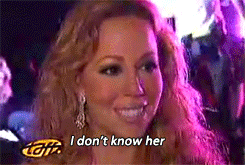This list is incomplete without Patton. Pretty sure he's got Axl beat in terms of range:
http://therangeplace.forummotions.com/t105-mike-patton
Sung range: E♭1-E7
Total range: E♭1-F♯7
Significant high notes:
F♯7 ("Delirium Cordia")
F7 ("Litany IV")
E7 ("Abraxas", "Page 17 & 18" live, "The Man in the Blue Slip")
C♯7 ("Introduce Yourself" live at Download Festival 2009, "Smaller and Smaller")
C7 ("Happy Birthday" live)
B♭6 ("Egg" demo)
A6 ("Aubade")
G♯6 ("Like I Love You" live)
F6 ("Book of the Month" live)
E6 ("Caligula", "Malpractice")
E♭6 ("The Sorceress")
D6 ("Cuckoo for Caca" live Exit Festival 2010, "Litany I", "Act Three: A Barren Plain at Midnight; An Unnamed Location", "Almadel", "Litany II", "Litany III", "Litany IV", "When Good Dogs Do Bad Things")
C♯6 ("Libera Me", "Litany V", "Nuit Silencieuse", "Sleep (Part II): Carry Stress in the Jaw") live in Germany 2000)
C6 ("Templi Secritum")
B5 ("Der Golem" live Director's Cut Live 2011, "Grand Guignol (Version Vocale)", "Litany VI", "Caffeine", "Litany I")
B♭5 ("Act One: A Secluded Clearing in the Woods; A Single Bed in a Small Room; The Innermost Chapel of a Secret Temple", "Litany I", "Shapeshifting")
A5 ("Flashback", "Litany III", "Slayer Medley" live, "Red Clover", "Star A.D.", "Templi Secritum")
G♯5 ("Mr. Nice Guy", "Crépuscule")
G5 (Act Two: A Medieval Laboratory; In the Magick Circle", "Just a Man", "Psychoanalytwist", "Litany IV", "Crépuscule")
F♯5 ("One Step Beyond", "Murder of the Magicians", "Zombie Eaters")
F5 ("High Anxiety", "The Initiate", "She Loves Me Not", "Nuit Silencieuse")
E5 ("Caffeine" live, "Cape Fear", "Der Golem", "I Won't Forget You", "Litany V", "Mood Swing", "Surprise, You're Dead" live, "9 x 9")
E♭5 ("Mayday", "Star A.D.")
D5 ("A Leper with the Face of a Baby Girl", "Ashes to Ashes" live, "Edge of the World", "Tabula Smaragdina", "Epic" live, "Jockstrap")
C♯5 ("Urlo Negro", "Ars Moriendi", "Cuckoo for Caca", "Caffeine" live, "Grand Guignol (Version Vocale)", "Rosemery's Baby")
C5 ("Il Cupo Dolore", "Mr. Nice Guy", "Vanity Fair", "Star A.D.", "Bird's Eye", "Violence", "Soulympics", "Mescal Rite 1", "Rosemary's Baby", "Slowly Growing Deaf", "Last Cup of Sorrow" live, "Just a Man" live, "The Gentle Art of Making Enemies" live, "Ben" live, "Lookaway" live, "MTV Medley" live, "Der Golem" live, "Simply Beautiful" live)
B4 ("Bloody Mary", "Falling to Pieces", "Henry: Portrait of a Serial Killer", "Infinito", "Kill the DJ", "Star A.D.", "Ajde Jano" live, "Rotgut", "The Morning After", "The Real Thing", "Thunderball" live, "God Hates a Coward", "Light Up and Let Go", "Midlife Crisis" live, "Surprise! You're Dead!" live, "We're Not Alone", "When the Stars Begin to Fall", "White Hats/Black Hats")
Significant low notes:
E♭1 ("Orc")
F1 ("Cudgegokalalumosospasashatetewaat")
F♯1 ("I Can Almost See Them", "Everything's Ruined")
G1 (Voice acting in The Darkness)
G♯1 ("Ballad of a Thin Man", "Book of the Month")
A1 ("A Thousand Eyes", Bionic Commando voice acting, "Der Golem", "Investigation of a Citizen Above Suspicion", "I Can Almost See Them", "Putting on the Blitz")
B♭1 ("Ballad of a Thin Man", "Book of the Month", "Delìrivm Còrdia", "Dracula Cha Cha", "How U Feelin?", "Vanity Fair")
B1 ("Antelope Ceremony", "Crépuscule", "Lookaway" live, "Happy Birthday" live, "King for a Day", "Midlife Crisis" live, "Kool-Aid Party", "Mood Swing", "The Waste")
C2 ("Cudgegokalalumosospasashatetewaat", "Ford Mustang", "Honeymoon", "Crépuscule", "Mojo", "Where Is the Line", "Cradle Song", "Point and Click", "Star A.D.", "RV", "Paths of Glory", "Stone Letter", "Stripsearch", "Just a Man" live, "Birdsong", "Jockstrap", "Midlife Crisis", live in Moscow 2012, "Pristina" live)
C♯2 ("God Hates a Coward", "Mayday", "Pit Stop", "Sweet Smell of Success", "The Devil Rides Out", "The Omen (Ave Satani)", "Where is the Line", "20 Km Al Giorno")
D2 ("Caffeine" live Hurricane 2009, "Don't Even Trip", "Anger Management", "Pitie Pour Mes Larmes", "Take This Bottle", "Litany IV", "Everything's Ruined", "Crack Hitler", "Helpless", "La Chanson de Jacky", "I Come", "Catch My Heart", "Pink Cigarette", "Mescal Rite 2", "Quote Unquote", "Helpless" live, "White Hats/Black Hats")
E♭2 ("The Christmas Song", "War Song", "Kindergarten", "Planemo", "Catch My Heart", "Henry: Portrait of a Serial Killer", "She Loves Me Not", "Spider Baby", "101 North")
E2 ("A Small Victory", "Aubade", "Caffeine", "Delìrivm Còrdia", "Evidence", "Ghost Dance", "G.I. Joe", "Kool-Aid Party", "Land of Sunshine", "Malocchio", "Point and Click", "Prairie Fire", "The Ballad of Hank McCain", "Totem", "Waratorium")


